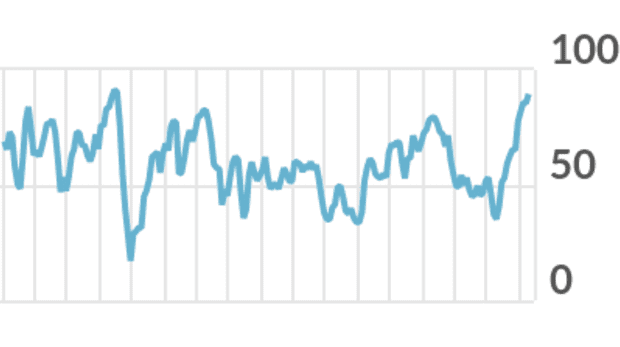The numbers: Soaring prices and widespread shortages of parts, materials and labor threaten to undercut fast-growing American manufacturers and throw up a roadblock to a U.S. economy still recovering from the coronavirus.
The Institute for Supply Management said its manufacturing index fell to 60.7% in April from a 38-year high of 65% in the prior month.
The increase fell well short of Wall Street expectations. Economists surveyed by Dow Jones and The Wall Street Journal had forecast the ISM index to edge up to 65%.
Read: Jobs are coming back as the U.S. economy speeds up and the coronavirus wanes
What happened: While readings over 60% are exceptional, top manufacturing executives say they are struggling to overcome key shortages that are causing the prices of most goods to rise, in some cases sharply.
“Steel prices are crazy high. The normal checks on the domestic steel mills are not functioning — imported steel is distorted by the Section 232 tariffs,” said a senior executive of a manufacturer of fabricated metal products.
“In 35 years of purchasing, I’ve never seen everything like these extended lead times and rising prices — from colors, film, corrugate to resins, they’re all up,” said a senior executive at a maker of rubber products.
The ISM’s price gauge rose to a 13-year peak and was twice as high compared to the last month before the pandemic began. It’s also taking longer for companies to obtain supplies, produce their own goods and get them out to customers quickly.
Supply shortages aren’t the only problem. Manufacturers struggled to find skilled workers even before the pandemic but it’s only gotten worse.
“Worker absenteeism, short-term shutdowns due to part shortages, and difficulties in filling open positions continue to be issues that limit manufacturing-growth potential,” said Timothy Fiore, chairman of the ISM survey.What isn’t a problem is demand.
The index for new orders slipped several points to 64.3%, but that’s still an extraordinarily high level that’s seldom been matched. And all 18 major industries tracked by the survey reported they are growing — the first time that’s happened since 2014.
Production also came off recent highs, but it was still quite robust.
Big picture: The surprisingly strong recovery in the U.S. economy this year, fueled by massive government stimulus, has spawned a huge increase in demand for a variety of goods. Yet manufacturers can’t keep up, especially with global supply chains still being disrupted by the coronavirus. Most other countries have not made as much progress in battling the virus.
These problems are likely to persist for awhile and push U.S. inflation to the highest level in years.
The Federal Reserve insists any increase will only be temporary and that inflation should subside once the world economy is mostly recovered. If the Fed is wrong, though, it could force the central bank to raise U.S. interest rates earlier than it plans and throw another kink into the recovery.
What they are saying? In short, the most pressing problem in the manufacturing sector isn’t a lack of demand, it’s the ability to meet demand,” said chief economist Richard Moody of Regions Financial.
Market reaction: The Dow Jones Industrial Average
DJIA,
+0.82%
and S&P 500
SPX,
+0.31%
both rose in Monday trades.






